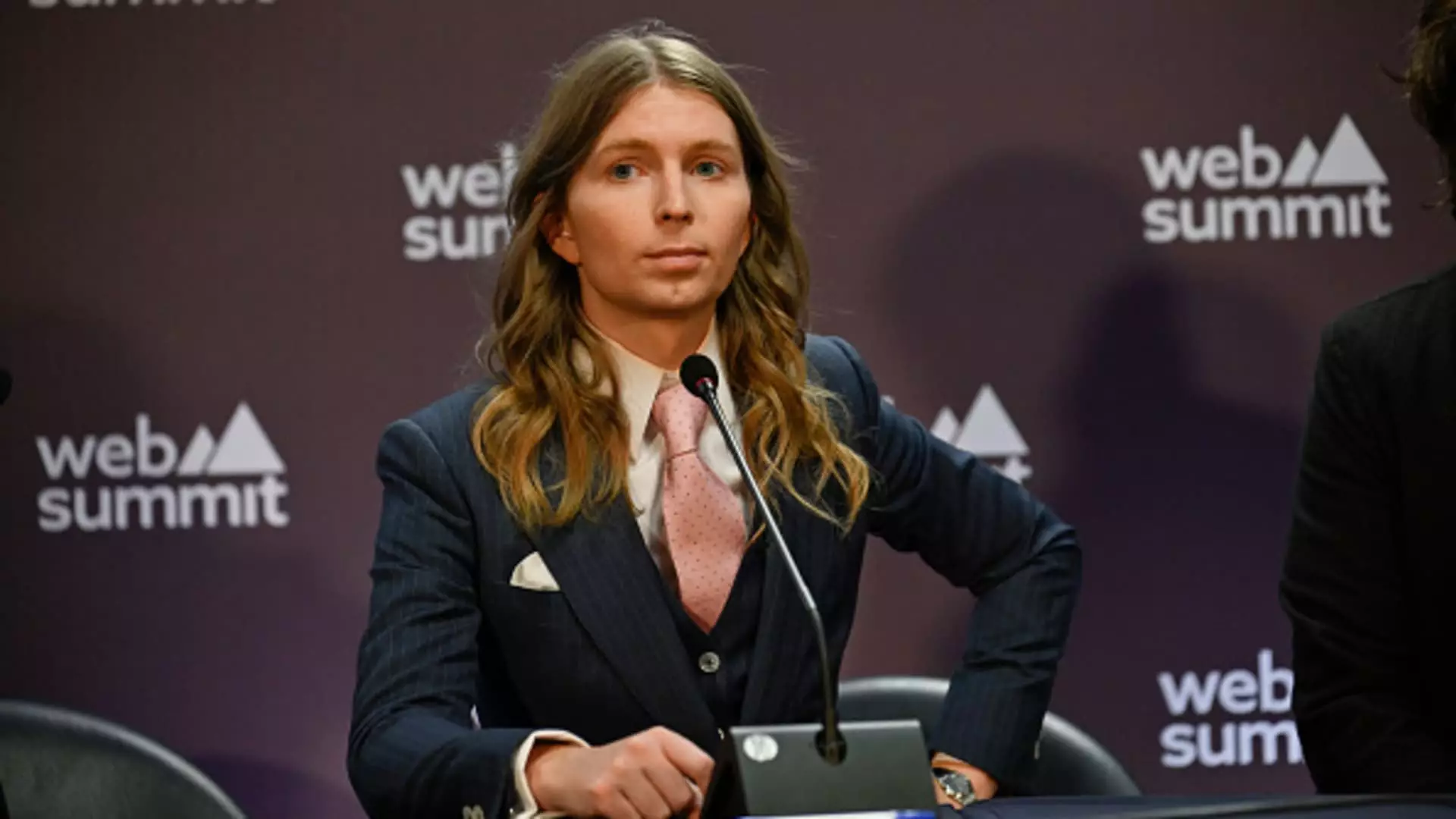In the contemporary digital landscape, the specter of censorship looms large, as articulated by former Army intelligence analyst Chelsea Manning. Speaking at the Web Summit tech conference in Lisbon, Portugal, Manning underscored the notion that censorship remains a “dominant threat,” reinforcing the idea that the gatekeeping of information online poses significant risks to individual freedoms. As society navigates the complexities of online content and safety regulations, the conversation surrounding censorship becomes increasingly pressing, particularly amidst the discord between tech executives and regulatory bodies regarding content moderation.
Censorship today transcends mere suppression of information; it embodies the subtleties of algorithmic manipulation and the prioritization of certain narratives over others. Manning points out that censorship is intricately linked to who is wielding that power and the underlying motivations behind their actions. In a world where social media platforms dominate communication, there’s a discernible need for a broad examination of how algorithms shape public discourse. As such, Manning provocatively urges a return to a more decentralized internet model reminiscent of the early ’90s, which would empower users rather than enmesh them in corporate-controlled narratives.
Manning proposes that one potential solution to online censorship lies in the concept of decentralized identification. This shift would grant individuals greater agency over their personal data, moving away from systems that rely heavily on tech companies to dictate terms of access and information sharing. By leveraging decentralized identities, users can regain control in a digital ecosystem increasingly entangled with privacy breaches and data exploitation.
This concept aligns with a growing consensus that the very structure of the internet must evolve to better protect individual rights. As Manning notes, a more decentralized internet could democratize information sharing, thereby alleviating some of the pressure exerted by monopolistic social media platforms. However, the challenge remains: How do these platforms remain sustainable in a less centralized framework? According to Manning, a redefined social contract addressing information sharing and access would be essential in fostering a healthy digital environment.
Manning’s journey as a whistleblower is deeply intertwined with ongoing discussions about transparency and accountability. Charged and convicted of espionage in 2013 for releasing classified military documents to WikiLeaks, Manning’s experiences shed light on the changing dynamics of whistleblowing in the digital age. Today, she posits that the abundance of information transforms the challenges faced by whistleblowers. Unlike previous eras dominated by secrecy, the contemporary landscape presents a paradox: an overabundance of information often leads to confusion.
As Manning observes, governmental institutions seem to be increasingly focused on disinformation rather than the traditional obfuscation of secrets. In this altered reality, whistleblowers must wade through vast oceans of data to filter out veritable truths from the noise of misinformation. The challenge is no longer merely a binary of secrecy versus transparency; it necessitates a nuanced understanding of what is authentic in a sea of disinformation.
Manning’s insights compel a reimagining of how individuals approach online privacy and data governance. In an age where information is omnipresent, it becomes imperative for users to take proactive stances on protecting their identities. The advent of stronger encryption and decentralized technologies can provide promising pathways for safeguarding personal information. By empowering users to verify their information through technical measures, we could pave the way for a more equitable and safe digital arena.
The crux of these conversations is rooted in a broader societal acknowledgment of the need for balance—between maintaining user privacy, ensuring transparency, and resisting the tide of disinformation. As Manning passionately advocates, the fight against censorship must evolve, reflecting both the lessons learned from the past and the challenges poised by exponential technological growth.
Manning’s call for a decentralized internet not only serves as a crucial reminder of the perils of censorship but also emphasizes the necessity of user empowerment in the digital age. As we navigate this complex terrain, fostering a culture of responsibility and accountability will be paramount in ensuring that personal freedoms and digital integrity are preserved.


Leave a Reply